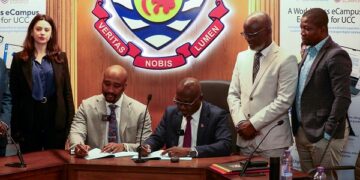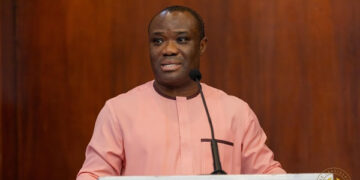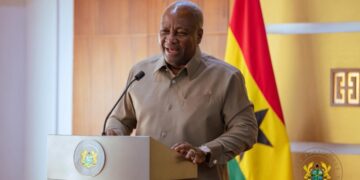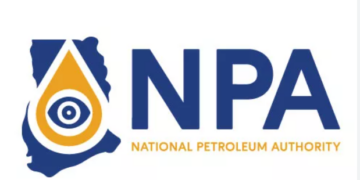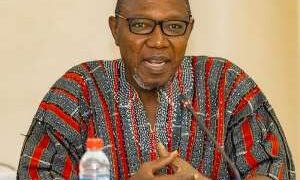The Electoral Commission has ordered the major opposition National Democratic Congress (NDC) to submit all electoral recommendations to the Interparty advisory committee (IPAC).
The EC said that they do not interact with individual political parties, but rather with the IPAC.
“We don’t deal with individual parties, and IPAC is designed to promote multi-party views, so IPAC is the right forum for such discussion.
“So we responded to their proposals and asked the party to bring it to IPAC,” the elections management body said.
The NDC has submitted yet another set of electoral reform recommendations for consideration by the Executive, Legislature, and organizations other than the Ghana Electoral Commission.
This follows the party’s first six recommendations for election changes on May 20, 2021, during a news conference titled: Assessing the so called achievements and electoral reforms proposed by the Electoral Commission of Ghana.
Those proposals were made in response to the adoption of some electoral reforms by the Inter-Party Advisory Committee (IPAC) and the Electoral Commission, which included closing polls at 3:00 p.m., a continuous voter registration exercise, and an all-year-round voter exhibition exercise using technology (SMS shortcode), among other things.
The NDC, which had not attended the IPAC meeting at the time, expressed reservations about the recommendations, rejecting several of them, particularly the plan to shut polling at 3:00 p.m.
In addition, during a stakeholder interaction, the following suggestions were presented and justified:
Provide for prior parliamentary approval for the appointment of EC members: The NDC is of the view that the current mode of appointment of the Electoral Commission appears to be partisan and does not involve the representatives of the people of Ghana (Parliament). They argue that this prevents the commission from being as independent, impartial, and trustworthy as it should be.
As a result, they want the selection of EC members to be similar to that of Supreme Court Justices, which requires previous legislative approval. According to the NDC, the Constitutional Review Committee (CRC), of which the current EC Chairperson, Jean Mensa, was a member, recommended previous legislative approval for the nomination of EC members, and that the proposal was adopted in the Government White Paper on the CRC Report.
Repeal the need that the AG’s approval is obtained prior to the prosecution of electoral offenses: Section 42 of the Representation of the People Act, 1992, PNDCL 284, requires the Attorney General to provide written permission for the prosecution of electoral offenses. The following is stated in the provision:
“A person shall not be prosecuted for an offense under this Act without the consent in writing of the Attorney-General, except that this section shall not prevent a person being
(a) charged with that offense, or
(b) arrested with or without a warrant in respect of the offense, or
(c) remanded on bail or in custody in respect of the offense, without the consent of the Attorney-General.“
The NDC argues that the police have often used this as “an excuse for the non-prosecution of high-profile electoral crime cases,” which they believe “creates a culture of impunity and undermines the fairness and legitimacy of Ghanaian elections.” They claim that, as a political appointment, the AG finds it difficult to agree to the prosecution of criminals who are ministers or party members. According to the NDC, this suggestion was originally presented by the EC’s own Electoral Reforms Committee in 2015.
Special courts to handle election-related offenses: The NDC seeks specially designated courts that will be appointed only to address electoral disputes and offenses before, during, and after voter registration and elections. According to them, this would minimize, if not eliminate, “undue delay in the adjudication of electoral disputes and crimes in Ghana,” as well as encourage the courts to specialize in election issues. They think the measure will also avoid scenarios in which an illegal President or an illegitimate MP represents the people owing to prolonged litigation.
The NDC recommends that the EC be authorized by legislation to apply to the courts to remove the names of dead and other ineligible individuals from the temporary register when notified by the appropriate authorities. According to them, the present system enables only registered voters to protest to any voter’s inclusion or removal from the provisional register. This, they claim, is the uniform approach that will enable the register to be cleaned up more efficiently.
The NDC wants the national broadcaster, Ghana Broadcasting Corporation (GBC), to conform with the requirement of Article 55 (11) of the Constitution of Ghana, 1992, as established in the Supreme Court judgment in New Patriotic Party v. Ghana Broadcasting Corporation [1993-94] 2 GLR 354. According to Article 55 (11):
“The state shall provide a fair opportunity to all political parties to present their programs to the public by ensuring equal access to the state-owned media
They believe the proposal when implemented will ensure an even playing field and equitable access to state-owned media which is funded by the taxpayer.”
The opposition NDC wants the Inter-Party Advisory Committee (IPAC) to be legally supported via a change to the Electoral Commission Act, 1993, Act 451. They seek the change to layout the composition and functions of IPAC, a suggestion that was originally made by the EC’s own Electoral Reforms Committee in 2015, approved by the IPAC, and accepted by the EC.
Among the other suggestions are:
Defining the security duties of the EC (if any), the police, and the military during voter registration, as well as during and after voting.
Legislation should oblige the EC’s Chairperson as the Returning Officer of the Presidential Election to allow agents of participating political parties and candidates full involvement in the collation of Presidential Election results at the EC’s National Collation Centre.
The EC must be made a mandatory party to all parliamentary election petitions, just as it is in presidential election petitions, as well as a compellable witness to produce all public election and related material and documents relevant to presidential and parliamentary election disputes under the law.
By modifying the Political Parties Act, 2000, Act 574, the EC was split into two distinct bodies: an Office for the Regulation of Political Parties (ORPP) and an Electoral Commission (EC).
Read Also: TikTok hopes to help teenagers work, rest and sleep


